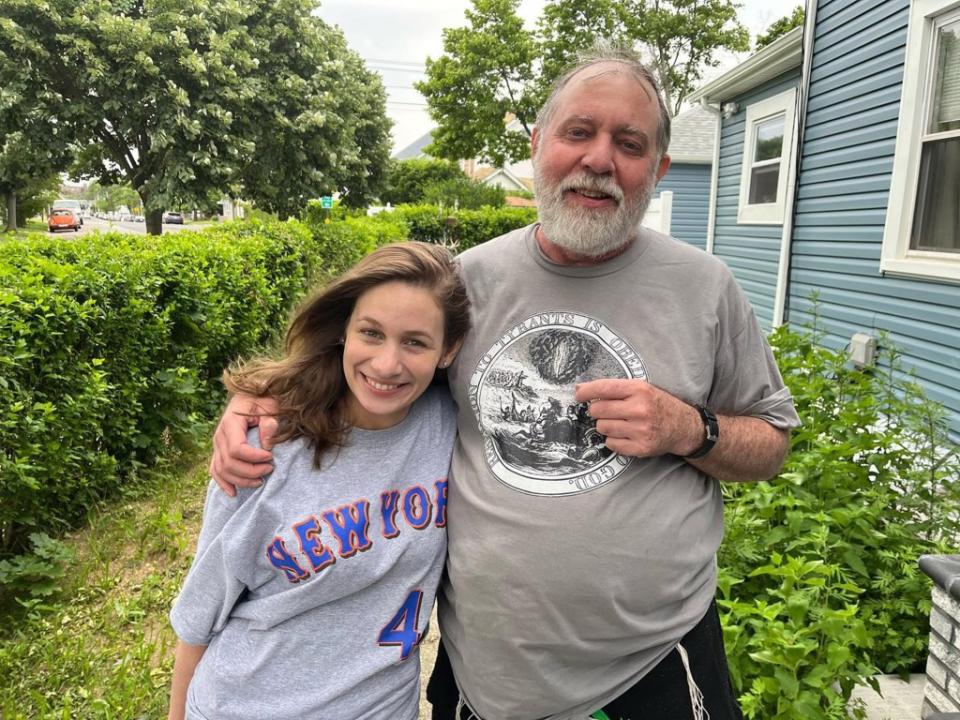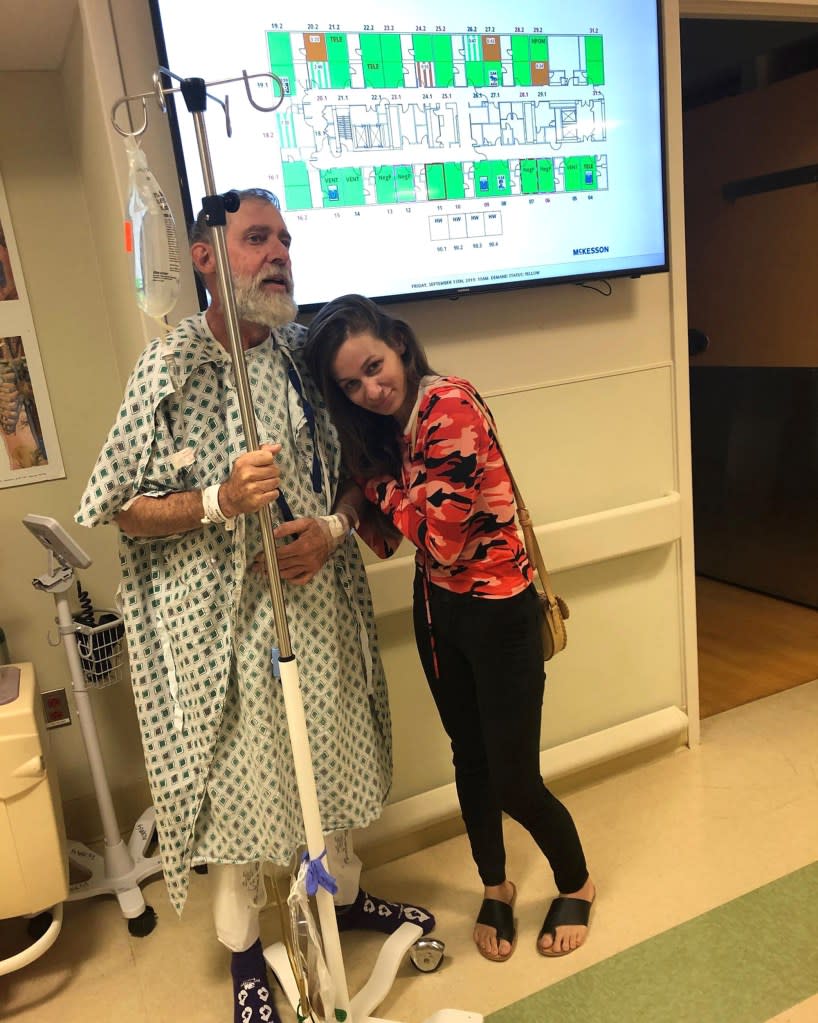4 things nobody tells you about watching a loved one die of cancer

Life is sadly not as Hollywood portrays it to be.
Many people may think that when they walk into a hospital, they’re on an episode of “Grey’s Anatomy,” but that is far from reality.
Kate Middleton likely learned this all too well when she was diagnosed with cancer after having “major abdominal surgery” in January.
“The surgery was successful. However, tests after the operation found cancer had been present,” the Princess of Wales, 42, revealed in a bombshell videotaped statement Friday.
“My medical team therefore advised that I should undergo a course of preventative chemotherapy and I am now in the early stages of that treatment.”
While the royal insisted she is “well and getting stronger every day,” other patients’ real pain begins when the cancer has spread too far and chemotherapy and radiation no longer work, so doctors stop treatment.
As the daughter of a Stage 4 bladder cancer patient, I’ve empirically learned four realities that people usually don’t talk about — harsh truths that aren’t likely to be written into the scripts of medical TV shows or movies.
1. How angry your loved one with cancer becomes due to pain
When I visited my father for the final time, I thought it would be as seen on TV: sentimental, tearful and beautiful.
To my surprise, I found him extremely irate.
As I walked into his hospital room, my father was barking at nurses and howling in pain.
The palpable anger he felt was extremely out-of-character for him, but shockingly enough, I discovered that “terminal agitation” and end-of-life personality changes are normal for cancer patients who are at death’s door.
“Fear, anxiety and anger are all commonly seen characteristics of patients with terminal illnesses,” according to Missouri-based Crown Hospice.

These upsetting emotions are caused by many feelings of the cancer patient.
Namely, “pain, emotions surrounding death, confusion and delirium,” the organization said.
Knowing you’re dying is a paralyzing emotion that plays antagonizing games with the minds of the dying and those who surround them.
2. How exhausting the emotional rollercoaster of cancer is for the patient — and you
The Canadian Cancer Society describes the varying twists and turns, and incessant ups and downs of cancer as “an emotional rollercoaster.”
Every day that cancer is in your life, whether it be in your own body or the cells of a loved one, it feels like you are going up the vicious ride’s tracks again and again.
The repetition induces frustration and exhaustion, as the tracks are always in transmutation.
The National Library of Medicine explored family members’ experiences of caregiving throughout a cancer trajectory from diagnosis until around one year after chemotherapy and radiation treatment ended.
Its findings were similar to the Canadian Cancer Society’s.

The “results indicated that the family members felt invisible and not involved and … experienced being a caregiver throughout the cancer trajectory as an emotional roller coaster,” according to its site.
The ups and downs feel never-ending and the loops are dizzying at best.
Cancer is a universally distressing ride that one can’t unbuckle from.
When you’re the loved one of a cancer patient, you feel zapped and powerless, having no control of the situation, forced to simply sit and watch your loved one suffer, with no way to ease their pain.
3. The confusion and lack of appetite felt by the cancer patient at the end of their life
Another lesser-known side effect that cancer patients, especially those at the end of their rope, experience is delirium.
Delirium is defined as “a confused mental state that includes changes in awareness, thinking, judgment, sleeping patterns, as well as behavior,” according to the National Cancer Institute.”
I saw delirium first-hand when I was trying to get my father to say goodbye to me.
I thought he would tell me he loved me and give me a hug.
Instead, I was met with almost blank, glossy eyes staring longingly at me asking if I would plan an engagement party for him and my mother, whom he is no longer with.
My heart ached for the in-person goodbye that I would not get.
Unlike the misty-eyed scenes you see on the small or big screen, my father barely spoke during my last visit with him, and the man who used to inhale food no longer ate.
On occasion, he would down Ensure drinks and take bites of Kit Kats, claiming that the endorphins from chocolate helped distract from his constant pain.
Per Cancer Research UK, “As the body begins to shut down, it can’t digest food. So even small amounts of food might make you feel uncomfortably full or sick. Or you might find that eating gives you stomach pain or diarrhea,” per Cancer Research UK.
So it makes sense that my dad began to frown at the thought of eating.
4. How brutal and sad a cancer patient’s end of life truly is
I never thought I would hope for my dad to pass away, but after seeing the amount of pain he was in, I did.
WebMD reveals that during the end of life, “pain from cancer may happen when cancer takes over tissue, or when tumors press on your bones, nerves, or organs. Some tumors release chemicals that cause pain, or cause your body to react in pain.”
Cancer in its final stage not only eats you alive, it takes its sweet time in doing so, leisurely shutting down organs.
Watching my father go through the advanced stage of his bladder cancer made me realize that those who suffer heart attacks are quite lucky in comparison.
After witnessing the brutality of cancer, I’d choose to die by a shark attack over Stage 4 cancer any day, as it would be just as horrific, but a much swifter death.

